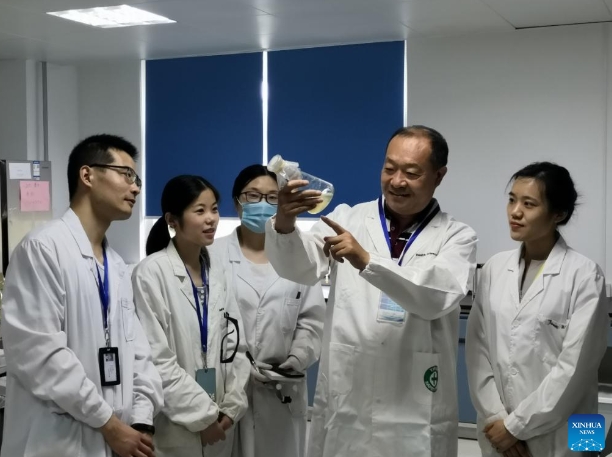Chinese scientists achieve breakthrough in combating plant cancer

This photo taken in September 2023 shows Gao Wenyuan (2nd R), a professor at the School of Pharmaceutical Science and Technology, Tianjin University, leads his team to conduct a research at a lab in north China's Tianjin Municipality. (Xinhua)
Chinese researchers have developed a novel bio-fungicide to combat root rot disease in cultivating Astragalus membranaceus, commonly known as Huangqi or Astragalus root, according to an article published in Chemical Engineering Journal.
The bio-fungicide can suppress the root rot disease and promote the growth metabolism of Astragalus membranaceus, said Gao Wenyuan, a professor at the School of Pharmaceutical Science and Technology, Tianjin University, who led the research team.
Root rot disease is a kind of plant cancer and a common disease in Chinese medicinal herb planting areas, caused by a complex of pathogenic fungi. It poses a significant threat to the cultivation of Astragalus membranaceus.
Mechanistic studies have revealed that this novel bio-fungicide exerts its antifungal effect by inhibiting the growth genes of Fusarium oxysporum, stimulating the production of antifungal compounds in Astragalus membranaceu, and activating its resistance genes.
"This bio-fungicide is as effective as currently available pesticides, but the cost is lower and it is more environmentally friendly," Gao said, adding that it holds great potential as an alternative to traditional pesticides and has enormous applications in plant protection.
The researchers plan to further optimize the cost and promote widespread application in the future.
Editor:伏娅敏
